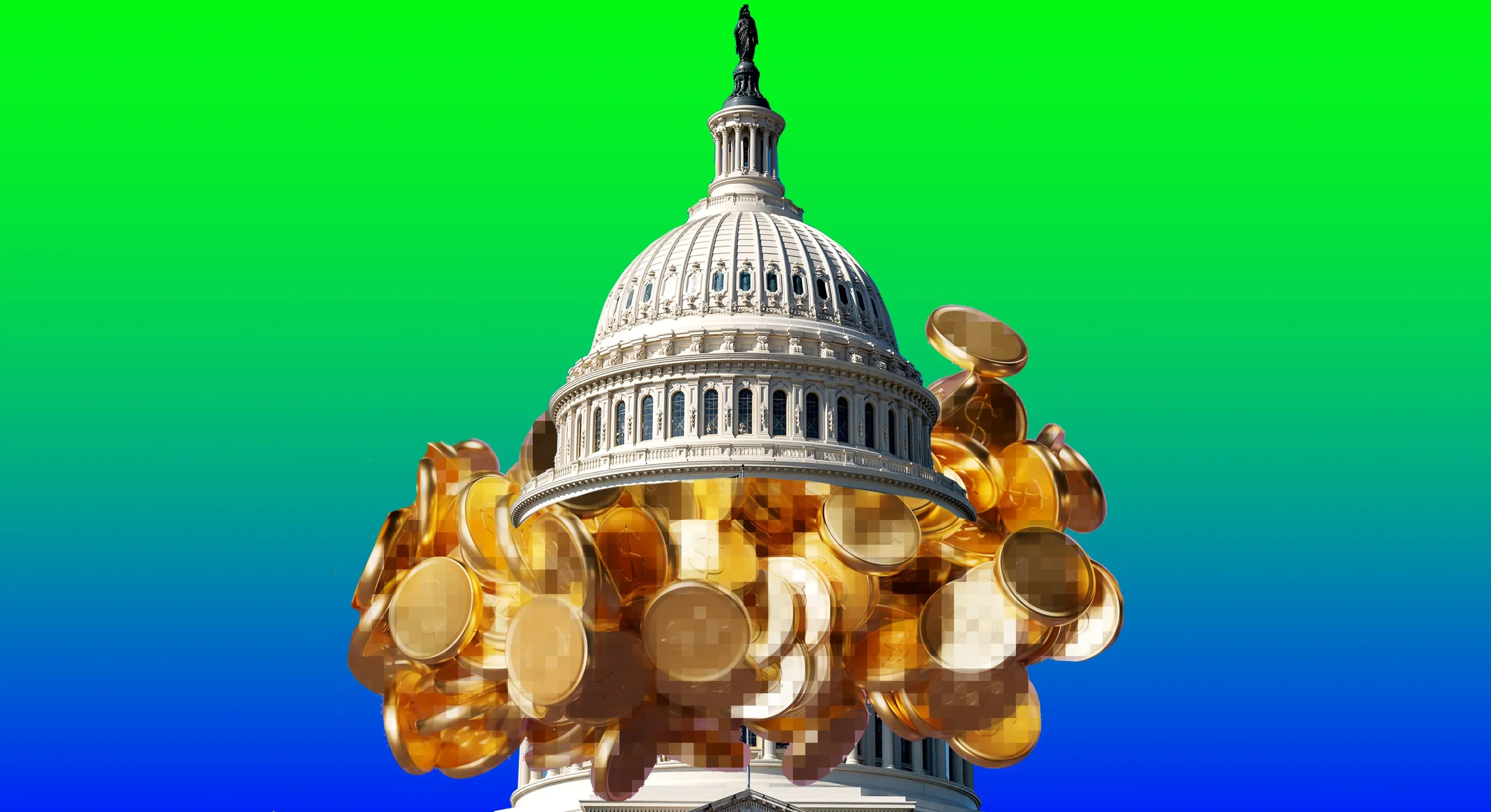The fever called "digital gold"
It’s hard to believe that an asset once labeled “cybercriminal money” is now being discussed seriously in the boardrooms of the world’s most powerful financial institutions. Bitcoin is having its best days since the beginning of the year. After surpassing the $120,000 mark in mid-July, the digital currency is currently hovering around $118,000-$119,000.
But what’s remarkable is not the numbers, but the forces that are quietly fueling bitcoin: trillion-dollar ETFs on Wall Street, big tech corporations, and politicians who openly support Web3. Bitcoin’s current “heat” comes not just from a wave of speculation, but from an entire ecosystem of power that is betting on the future of this digital currency.
The game has truly changed since spot bitcoin exchange-traded funds (ETFs) were approved by the US Securities and Exchange Commission (SEC) last year. The last barrier between Wall Street’s massive money and the crypto world has officially been broken.
With ETFs, investors, whether small individuals or large pension funds, can simply buy bitcoin through a traditional securities account, without worrying about e-wallets or cryptocurrency exchanges.
Przemysław Kral, CEO of Zondacrypto, said that the wave of interest from institutional investors, especially through ETFs, has made the market more accessible. The gradually clearer legal framework, typified by the European Union's MiCA (Markets in Crypto-Assets) Act, is creating an unprecedented favorable environment, driving a strong increase in demand for bitcoin.
But the wave is not just limited to finance. A new trend is emerging: large corporations are starting to view bitcoin as a strategic asset to put on their balance sheets. Leading the way is MicroStrategy, under the leadership of “captain” Michael Saylor, the company has bought tens of billions of dollars worth of bitcoin.
“Michael Saylor is adding half a billion dollars worth of bitcoin almost every week,” said analyst Scott Melker. That strategy is turning businesses into “bitcoin vaults,” creating a strong and sustainable demand that can “support prices” when the market is volatile.
Political Gamble and the Shadow of the Fed
The rise of bitcoin is not just a financial story, but also a political one. In the US, President Donald Trump has publicly declared his support for making the country the “global cryptocurrency capital”. That move, along with bills related to the crypto industry being discussed in the House of Representatives, has sent a strong signal to the market.
The endorsement of bitcoin by the US President, according to experts, creates an interesting paradox. John Hawkins, a lecturer at the University of Canberra, commented: "It is ironic that the Trump administration is backing bitcoin and cryptocurrencies in general, which were originally promoted as a decentralized tool against the state financial system."
For skeptics, this is evidence that bitcoin has strayed from its original ideals and is merely a speculative tool. “After 16 years of existence, it has not yet fulfilled its mission of becoming a common means of payment. It is still a speculative bubble,” Hawkins asserted.
Meanwhile, a more powerful force than the government is watching from the shadows: the US Federal Reserve. Fed Chairman Jerome Powell recently called Trump’s potential tariff policies “full of uncertainty” that could have a profound impact on the economic outlook. He stressed that the Fed will continue to maintain a “moderately tight” policy and that any future interest rate decisions will depend entirely on economic data.
The cryptocurrency market is extremely sensitive to these signals. A tariff shock in the past has wiped out hundreds of billions of dollars in crypto market capitalization in just a few days. Mr. Powell’s warning shows that, despite the support of politicians, bitcoin’s fate still depends heavily on decisions in Washington, especially monetary policy designed to control the traditional financial system.
Any move to curb inflation or deal with a recession could indirectly impact money flows into risk assets like bitcoin.

The US Congress greenlights the GENIUS Act - a powerful policy push to boost bitcoin and the entire cryptocurrency industry (Illustration: WIRED).
Crystal or Bubble: What's the Future for Bitcoin?
With all of these factors in mind, the biggest question remains where will bitcoin price go?
A recent Finder survey of 24 industry experts painted a mixed but optimistic picture. The most bullish, like Morpher CEO Martin Froehler, believe bitcoin could hit $250,000 this year, citing: “Institutional and corporate demand shows no signs of slowing, while retail investors remain on the sidelines.”
In the long term, even bolder predictions are that bitcoin prices will exceed $458,000 by 2030 and surpass $1 million by 2035.

The average forecast by experts for the bitcoin price peak in 2025 is $162,353 (Illustration: Matthew Modoono).
However, the road to the future is not smooth. Professor Ravi Sarathy from Northeastern University warns that the market may be forming a bubble, with large organizations such as MicroStrategy hoarding huge amounts of bitcoin, contributing to "inflating" its value.
Market cycles are still an unavoidable rule. Kadan Stadelmann, CTO of Komodo Platform, predicts that this bull run could peak in Q1/2026, before entering a new “crypto winter”, a period of prolonged bear market.
And a looming threat from the future is quantum computing. 79% of experts surveyed by Finder believe that this technology will pose a threat to bitcoin's cryptographic system. These super-powerful machines have the potential to break current encryption algorithms, threatening the security of the entire network. While most believe this threat will only become a reality in the next 5-10 years, it is still a "sword of Damocles" hanging over bitcoin's future.
Bitcoin, from an unfamiliar technological idea, has now become a complex financial asset, governed by trillion-dollar capital flows, political calculations, economic cycles and sophisticated business strategies of miners. 61% of experts believe that this is a good time to buy. But the warning from the CEO of Zondacrypto still holds true: "Hype always comes with risks. Don't invest just because of rumors or emotions. Learn carefully and equip yourself with knowledge before putting down money."
From here, the path of bitcoin will not be smooth. On one side is the expectation that it will become the “digital gold” of the new era. On the other side is the concern about the biggest financial bubble of the century. Amidst the wave of support from investors and politicians, bitcoin still faces the wariness of central banks and the intervention of the state. The new peak of bitcoin, whether it is $160,000 or $1 million, will be decided on this complex arena.
Source: https://dantri.com.vn/kinh-doanh/cuoc-choi-bitcoin-thay-doi-binh-minh-tai-chinh-hay-sieu-bong-bong-20250723231034284.htm



























![[Photo] National Assembly Chairman attends the seminar "Building and operating an international financial center and recommendations for Vietnam"](https://vphoto.vietnam.vn/thumb/1200x675/vietnam/resource/IMAGE/2025/7/28/76393436936e457db31ec84433289f72)






































































Comment (0)